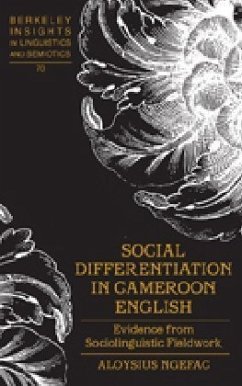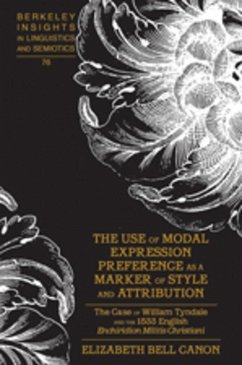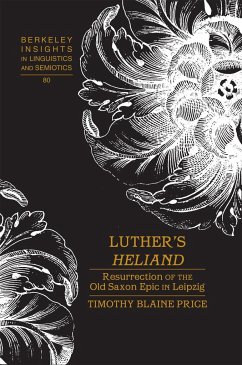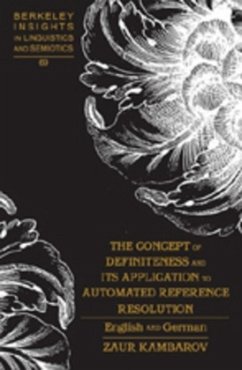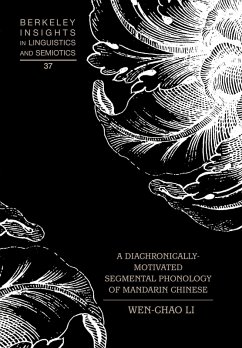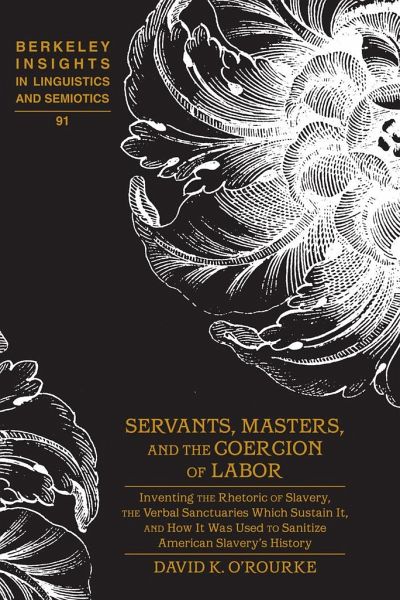
Servants, Masters, and the Coercion of Labor
Inventing the Rhetoric of Slavery, the Verbal Sanctuaries Which Sustain It, and How It Was Used to Sanitize American Slavery's History
Versandkostenfrei!
Versandfertig in 6-10 Tagen
87,15 €
inkl. MwSt.
Weitere Ausgaben:

PAYBACK Punkte
0 °P sammeln!
This book by David K. O'Rourke presents a study of language and linguistic forms and the roles they played in the initial imagining, developing, and maintaining of a society based on coerced labor. It focuses especially on the contexts of coercion and on the differences in the roles of masters and servants from society to society. In the interaction between colonial powers and conquered peoples, O'Rourke also describes how the European colonial nations imposed their own languages, social metaphors, and utopian views as a way to disconnect those they conquered from their historic roots and re-i...
This book by David K. O'Rourke presents a study of language and linguistic forms and the roles they played in the initial imagining, developing, and maintaining of a society based on coerced labor. It focuses especially on the contexts of coercion and on the differences in the roles of masters and servants from society to society. In the interaction between colonial powers and conquered peoples, O'Rourke also describes how the European colonial nations imposed their own languages, social metaphors, and utopian views as a way to disconnect those they conquered from their historic roots and re-imagine, redefine, rename, and map them into new lands and places inhabited by inferior peoples needing control by masters who understand how they should now live.
O'Rourke begins by describing how this rewriting of history is not new. He calls on well-established classical and biblical language studies to describe how older and historic oral histories and texts were rewritten to reshape the past to fit new and more useful views. He explains how rhetoric, metaphor, and pseudo-sciences were used to change Europe's earlier contracted and coerced labor in colonial America into the chattel slavery that became the hallmark of the new and growing United States. O'Rourke also describes how the dominant culture's current values, foundational metaphors, and sacred notions were woven together into linguistic shelters that served to enshrine the repressive process from questioning and dissent. These same linguistic elements were then used after emancipation to maintain and sanitize the remains of the slave system by presenting it as a benign institution.
O'Rourke begins by describing how this rewriting of history is not new. He calls on well-established classical and biblical language studies to describe how older and historic oral histories and texts were rewritten to reshape the past to fit new and more useful views. He explains how rhetoric, metaphor, and pseudo-sciences were used to change Europe's earlier contracted and coerced labor in colonial America into the chattel slavery that became the hallmark of the new and growing United States. O'Rourke also describes how the dominant culture's current values, foundational metaphors, and sacred notions were woven together into linguistic shelters that served to enshrine the repressive process from questioning and dissent. These same linguistic elements were then used after emancipation to maintain and sanitize the remains of the slave system by presenting it as a benign institution.






